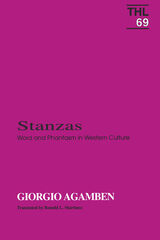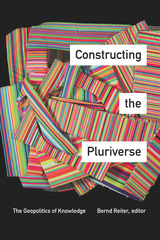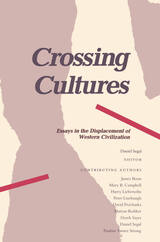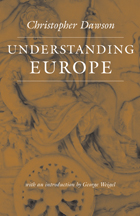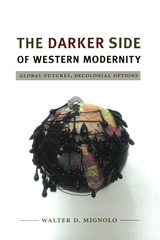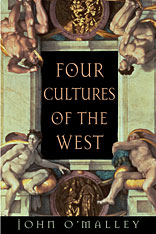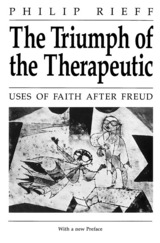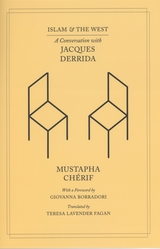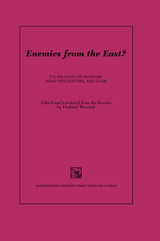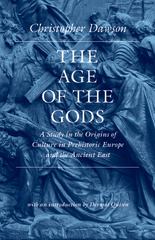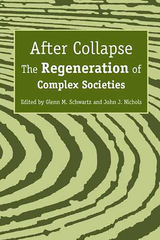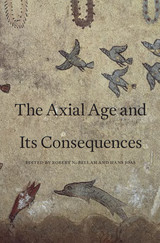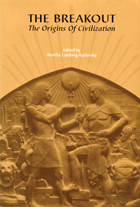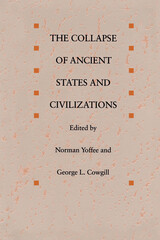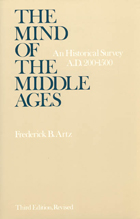Mr. Kepel's book is less about ideology and culture and more about war and geopolitics; with a full account of the Madrid bombings last spring, and the upsurge of fighting in Iraq at around the same time, it is remarkably up to date. The book includes a succinct anatomy of America's neoconservative camp, along with that camp's bitterest enemies in the world of ultra-militant Islam. It shows how both these parties were intensely frustrated by the Oslo peace process, and relieved by its collapse...Mr. Kepel is unsparing in the way he contrasts Iraq's present situation with the post-Saddam vision once promised by the neoconservatives...He also insists that ultra-militant Islam has not won either...It is possible, [he] suggests, that European Islam might evolve in new ways that could co-exist with modernity, asserting its distinctiveness without pretending, dishonestly, to live in another century...In the development of such an understanding, [The War for Muslim Minds] can make a large and highly intelligent contribution.
-- The Economist
The War for Muslim Minds is less sanguine [than Kepel's previous book]. In a wide-ranging survey of events over the past few years, Mr. Kepel makes the case that the West is losing exactly such a war. Islamism may be in decline but its replacement is hardly better: a less focused but equally bitter rejection of the West. This rejection has come about, he argues partly because of Islam's own misguided sense of modernity but partly, too, because of U.S. policies that were designed to do the opposite--to provide an alternative to antimarket, antidemocratic ideologies.
-- Ian Johnson Wall Street Journal
A masterpiece of political explication. Kepel is especially good on the symmetries between the Islamic fundamentalists and their Western equivalents, the neoconservatives.
-- Daniel Lazare The Nation
Reading Gilles Kepel's new book, The War for Muslim Minds, challenges one's sense of scale. Crucial, irreversible steps such as George W. Bush's early decision not to pursue the Palestinian-Israeli peace process and the neoconservatives' justification for the Iraq war, take on new meaning when seen in context of the enormous geopolitical scope of Islam today...Easy to read (no footnotes but a good bibliography for each chapter), this persuasive book challenges the American perspective on the war on terror and, more important, reveals the rich complexity of contemporary Islam.
-- Thomas D'Evelyn Christian Science Monitor
Gilles Kepel [has] proved to be among the most insightful Western observers of Muslim societies in the modern world.
-- Pankaj Mishra Times Literary Supplement
Kepel masterfully traces the different threads of the mujahideen, focusing on Ayman al-Zwahiri, who emerged as the mastermind of Al-Qa'ida...Kepel's strength lies in providing an intricate analysis of the major players, ideologies and movements in such disparate cultures as the U.S. and Middle East.
-- Sheema Khan Montreal Gazette
Kepel's central thesis can be summed up simply: the United States is losing the war, and badly. Instead of encouraging resolution of the Israeli-Palestinian conflict, the Bush administration has played directly into Al Qaeda's hands by invading Iraq. It failed to recognize that the war would further inflame the Muslim world, convincing more Muslims than ever before that the United States was their enemy. Now, Kepel says, Europe will inherit the whirlwind, in the form of growing Islamic extremism and terrorist acts like the Madrid bombings.
-- Noah Feldman New York Times Book Review
The War for Muslim Minds is...clearly the product of deep learning; Kepel knows Islamism well enough to see distinctions where most commentators see only uniformity. His discussions of the competing strains in Saudi Islamist thought and the influence of Internet imams on Muslims in France are worth the book's price alone...The problem, he suggests, is that...the Bush administration's war on terror--expressed in disastrous policies toward both the Palestinians and Iraq--is gaining for al-Qaeda an appeal it could never win on its own. In contrast to President Bush, who has responded to 9/11 with an audacious effort to redirect the course of Muslim history, Kepel implicitly calls for something far more modest: prudent management of a threat that--if we let it--can be beaten from within. The war for Muslim minds, Kepel suggests, will be won in Riyadh, Cairo, and the suburbs of Paris. In Washington it can't be won--only lost...He sees a vital role for the young Muslims of Europe, who, if granted economic opportunity by their host societies, could create a model of tolerant, prosperous Islam that reverberates across the globe...If realism is returning to fashion, Gilles Kepel may finally have the intellectual wind at his back.
-- Peter Beinart The Atlantic
Reading Gilles Kepel's important book, it is easy to see why al-Qaida should be so enthusiastic about Bush...[He] has fulfilled Bin Laden's every hope. Through the invasion of secular Ba'athist Iraq, the abuses in Abu Ghraib, the mass-murders in Faluja, America, with Britain's obedient assistance, has turned Iraq into a jihadist playground while alienating all moderate Muslim opinion. We may have failed to capture Bin Laden, but we have succeeded in liberating the extremists, radicalising the unaffiliated and making life more difficult than ever for our natural allies: ordinary, decent, moderate Muslims. Kepel is the best possible guide through the frightening labyrinth of militant Islam. A fluent Arabic speaker who has spent many years in the Middle East, he has been writing about the subject for two decades, and has personally interviewed most of the principal players. Kepel writes with forensic clarity and an unrivalled grasp of detail; yet his deep knowledge of the subject over a long period allows him to present the wider picture. This concise, engaging and authoritative book should be required reading for anyone wishing to understand what is happening in the Islamic world and the terrifyingly counter-productive nature of our response to it...The battle is now on for the hearts and minds of ordinary Muslims--a battle the U.S. is catastrophically losing.
-- William Dalrymple The Guardian
Al-Qa'ida has been so thoroughly anatomised that one wonders if there's much more to say. As Kepel's book proves, there certainly is...Kepel's account of neo-conservativism is as interesting as his analysis of al-Qa'ida...His analysis of how Egyptian and Saudi strains of radical Islam fused to create a virulent new cocktail is detailed and persuasive, as is his X-ray view of the Saudi state.
-- Michael Church The Independent
The book deals in concise and convincing ways with Saudi Arabia's Muslim Brotherhood and the deadly influence of Wahhabi Islam. This is one of the best short analyses of that country's past and future available. And the chapter on the war in Iraq allows Kepel to look, unsparingly and in depth, at the global political fallout of the issues he has described in the preceding pages. Indeed, as of now, The War for Muslim Minds can be regarded as a standard, perhaps even definitive, layman's guide to the current state of Islamism, and a work that deserves to be read widely.
-- Turi Munthe Times Higher Education Supplement
[An] excellent book...by a brilliant academic turned popularizer...As well as his valuable discussion of al-Qaeda, Kepel has some useful things to say about the pedigree of Neoconservatism in the United States and about developments in Saudi Arabia, in particular the effects of the influx of Islamists flying from persecution in secular Middle Eastern states during the 1950s and '60s.
-- M. E. Yapp Times Literary Supplement
[The War for Muslim Minds] displays a remarkable mastery of detail as it ranges across the Middle East and illuminates debates within Islam and the American right.
-- John Dugdale The Guardian
The author's...thorough scholarship in the field of Islamic studies is impressive. He understands the subtle distinctions between sects of the religion and how those distinctions have fueled the rise of radical, terrorism-focused Islam responsible for the September 11th attacks. What is striking is Kepel's uncovering of how the two cornerstones of US policy in the region over the last half century--the security of Israel and the sustained friendship with Sunni petro-monarchies--inarguably led to the destruction of the World Trade Center towers on 9/11, and how those two mainstays also fueled Bush #2's determination to invade Iraq.
-- Avi Kramer Kliatt
The best primer available for the general reader on the history and implications of the 11 September attacks and the War on Terror.
-- Leila Hudson Historian

